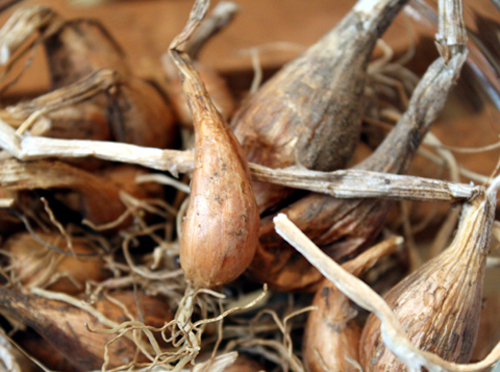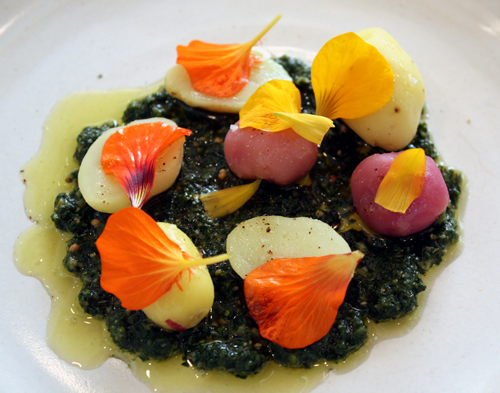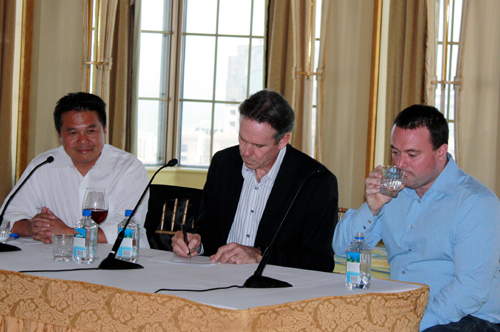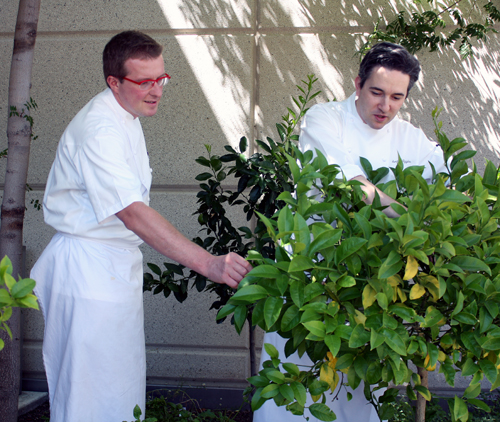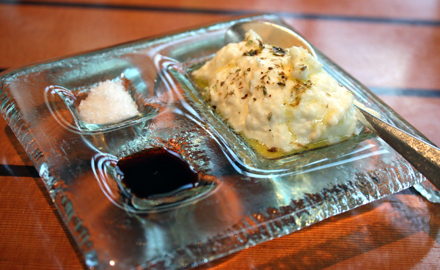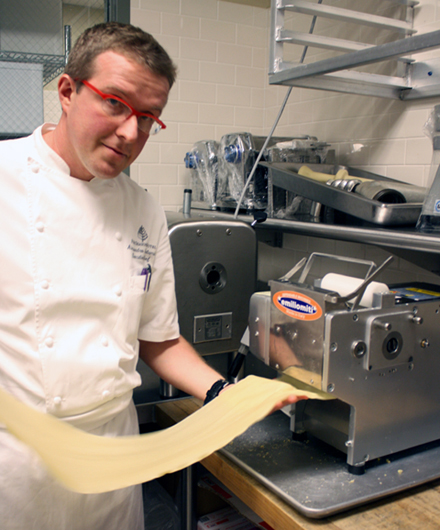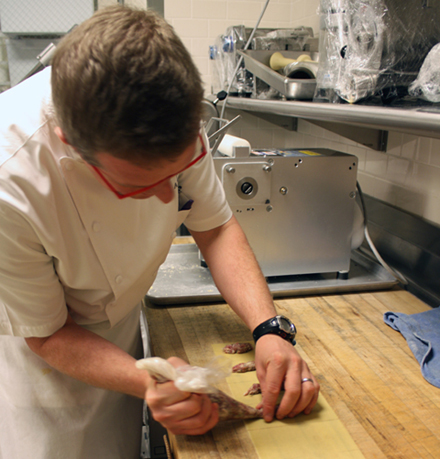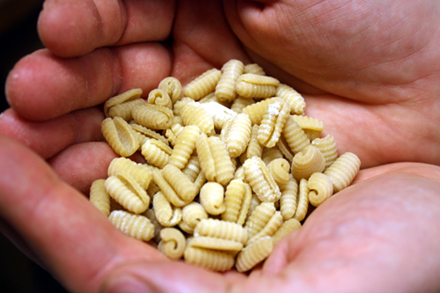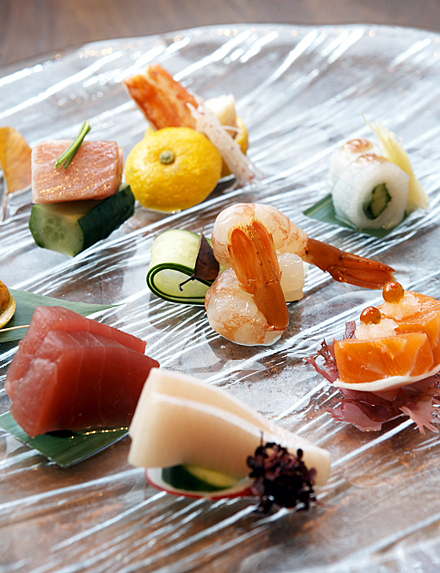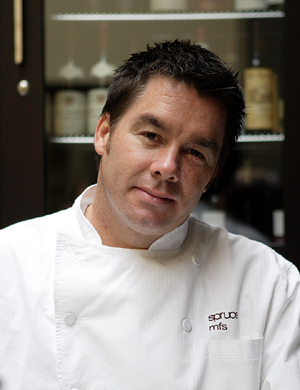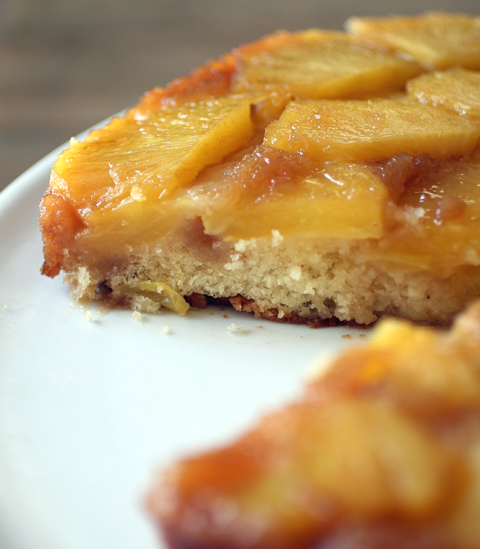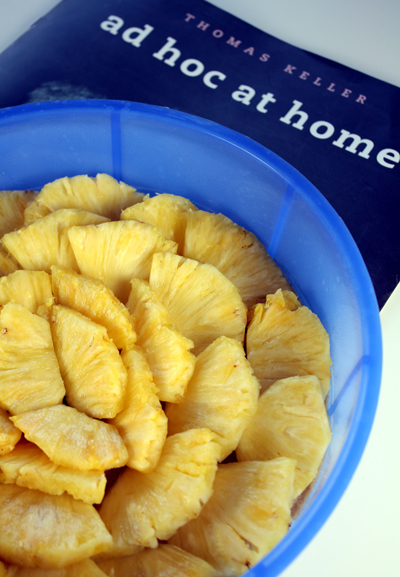Organics on the Menu at Stanford Hospital

Soup sure does a body good.
Stanford Hospital knows that. And if you’re a foodie ever in need of medical care, you might just want to make sure you end up there, because the renowned hospital has just launched a new all-organic, local, sustainable “Farm Fresh” menu option for inpatients. It’s centered around gourmet soups created in collaboration with Peninsula restaurateur and long-time champion of organics, Jesse Cool.
Right now, the organic option, which started a few weeks ago, is offered only at dinner time to patients on unrestricted diets. But plans are to eventually expand it to patients’ lunches, and to the cafeteria offerings.
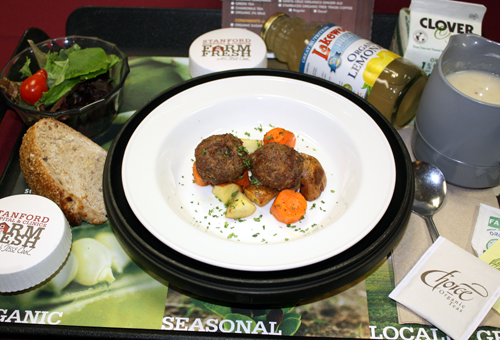
If you opt for the organic menu, you get your choice of made-from-scratch chicken noodle soup or that day’s local vegetable soup. The latter might be cauliflower soup with rosemary, roasted sweet pepper with goat cheese, roasted tomato with herbs, potato leek, carrot ginger with curry, cream of spinach, or corn with basil and smoked cheddar.
Your tray also arrives with a small organic salad, organic whole grain bread, a dessert of either stuffed baked apple or seasonal fruit with honey yogurt sauce, and a beverage such as organic lemonade, green tea, organic ginger ale, or Starbucks organic free-trade coffee.
Your soup bowl contains your choice of protein — grass-fed meatballs, poached organic chicken, or smoked tofu. Your soup comes separately in a thermos carafe to keep it nice and warm. It gets poured table-side — or in this case, bed-side.
Hospital food never looked so appealing.
So in this dreary economy, in which cash-strapped consumers are buying less organic food, why is Stanford Hospital taking on the potentially added cost of providing an organic menu for patients?
With 450 patients in its hospital at any one time, administrators believe they will be able to negotiate purchasing agreements with local farmers, many within a 200-mile radius of Stanford, so that the organics menu will be cost-effective.
“We believe that part of the healing process for patients involves eating food as fresh as possible, in which nutrients are preserved,” says Shelley Hebert, executive director of public affairs for the hospital. “We also want to educate patients about healthful eating and cooking when they leave the hospital.”
To that end, the soup recipes are being made available on the hospital’s Web site.
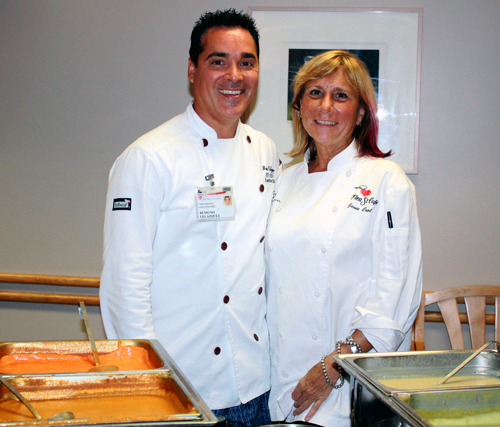
Cool, who owns Flea Street Cafe in Menlo Park, worked on the soup recipes with the hospital’s Executive Chef Beni Velazquez, a certified instructor with the Culinary Institute of America and a former Ritz-Carlton Hotel chef.

